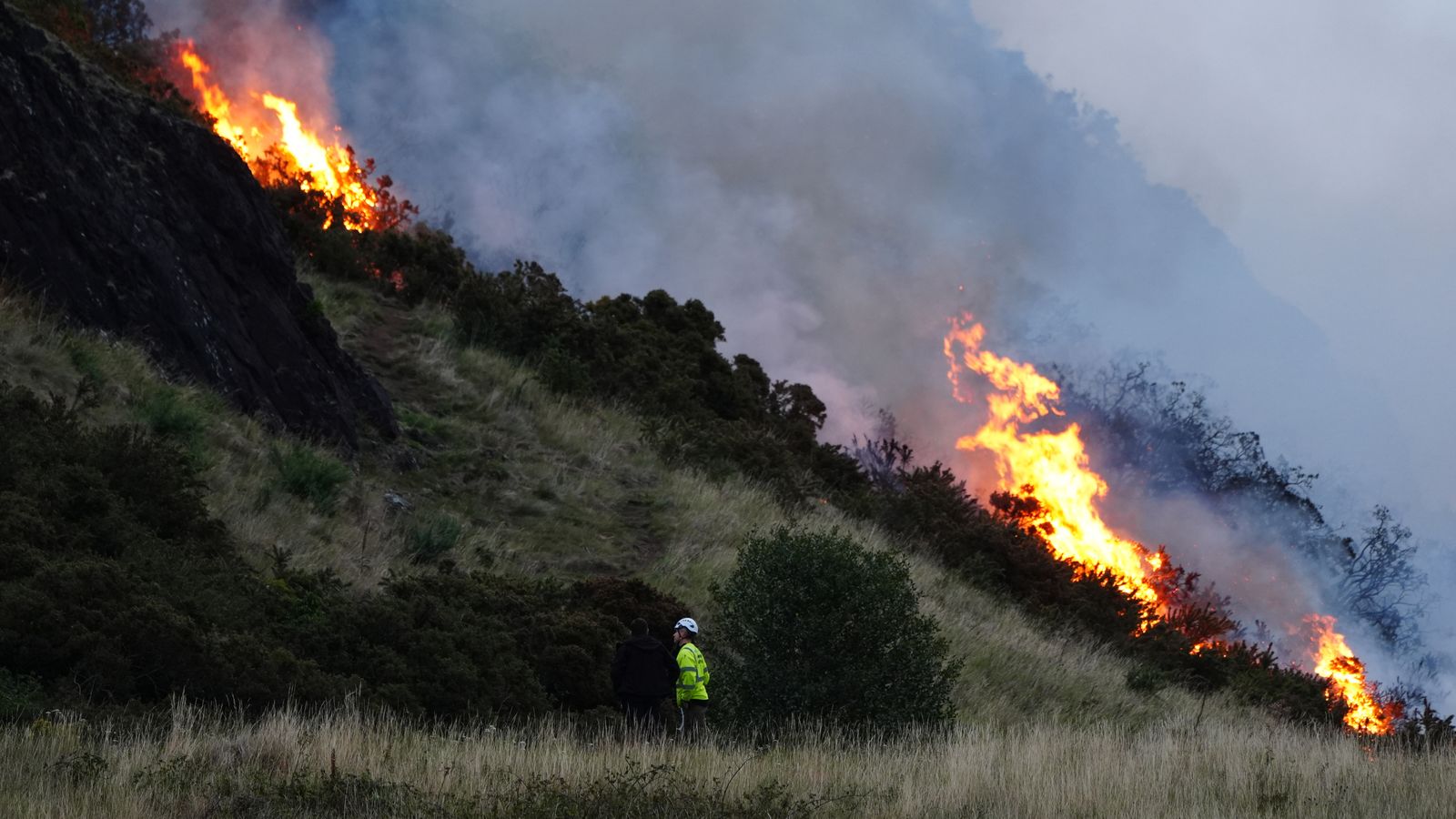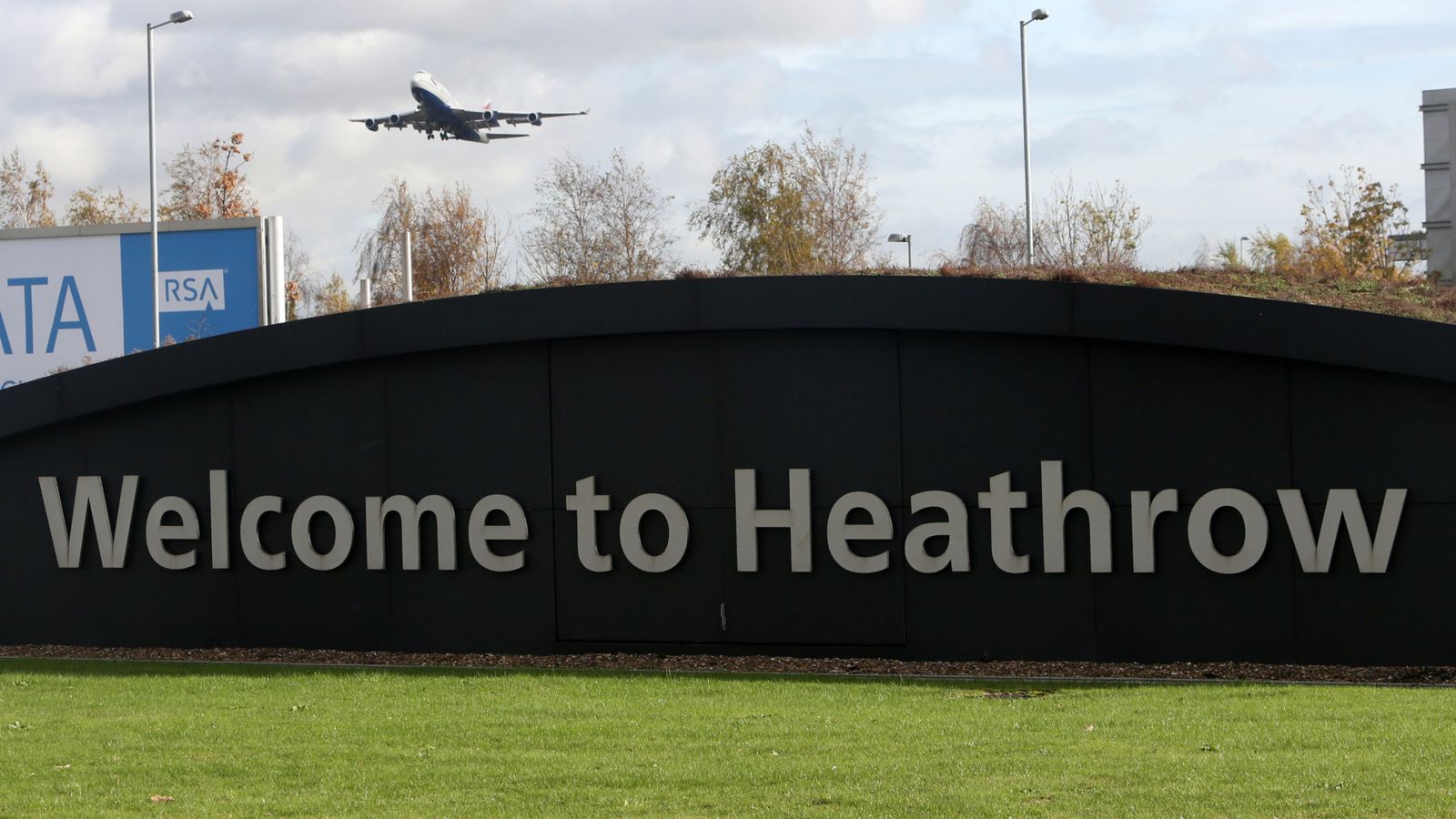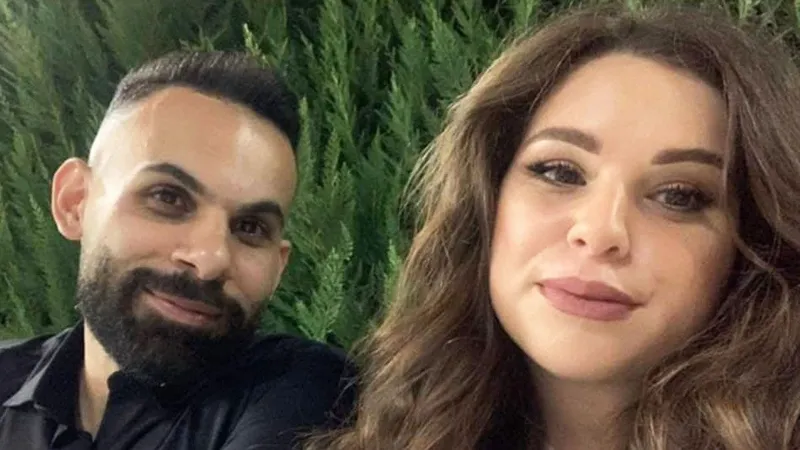Moscow helped Assad flee to Russia in 'most secure way possible,' says official
Moscow has confirmed Bashar al Assad is in Russia. Its deputy foreign minister has indicated the ousted Syrian leader would not be handed over to the International Criminal Court, despite his regime being accused of war crimes. Listen to the Daily podcast as you scroll.
Pope Francis calls on Syrian rebels to stabilise country
Pope Francis has called on the Syrian rebels who toppled the Assad regime to stabilise the country and govern in a way that will "promote the stability and unity of the country".
"I pray that the Syrian people may live in peace and security in their beloved land and the different religions may walk together in friendship and mutual respect for the good of that nation afflicted by so many years of war," he said during his weekly audience at the Vatican.
Muslims make up about 90% of Syria's population.
The Vatican estimates there are around 300,000 Catholics among a population of some 25 million.
Israel launches '350 airstrikes on Syrian military sites in 48 hours'
The Israeli military says it has struck more than 350 military sites across Syria, destroying most of the country's "strategic weapons stockpiles" over the past 48 hours.
In an update on Telegram last night, the Israel Defence Forces shared footage of its forces bombing what it said were the al Bayda and Latakia naval ports, where 15 Syrian vessels were docked.
It said anti-aircraft batteries, airfields and weapons production sites in Damascus, Homs, Tartus, Latakia and Palmyra, were also struck.
Benjamin Netanyahu, the Israeli prime minister, has claimed attacks on Syria are to ensure weapons used by the Assad regime do not fall into the hands of jihadists.
"We have no intention of interfering in the internal affairs of Syria," he said in a video statement, "but we certainly do intend to do what is necessary to ensure our security."
Asylum claims for Syrian refugees in UK now 'baseless', says Jenrick
Syrian asylum seekers waiting for cases to be approved in the UK should be deported as their previous cases for leaving the country are now "baseless" after the end of the Assad regime, says Robert Jenrick.
Speaking to Kay Burley on Sky News Breakfast, the former immigration minister said the British asylum system must not allow Syrians to "change their case" to stay in the UK.
"In a majority of those cases, they will have rested their asylum claim on the fact that there was a fear of persecution by the Assad regime. Now that that regime no longer exists," he said.
Mr Jenrick added that Hayat Tahrir al Sham, the rebel group that has seized power in Syria, is still on the UK's list of banned terrorist groups, so "we don't know what the situation will be like in the months ahead".
"But we do know that many, perhaps most, of those asylum cases are now baseless."
He said UK asylum authorities "need to be rejecting the asylum cases on the basis of their existing claim, deporting those individuals or organising voluntary returns back home to Syria."
Syrians who made lives in Berlin fear being forced home
In southern Berlin, Syrians have made a home from home.
Streets are lined with shops named after Syrian cities; reminders of the lives many fled due to war. Germany's taken in the most Syrian refugees in the European Union.
Yamn Moahen, manager of the Aldimashqi Restaurant, is one of just under a million Syrian nationals living in the country.
He's not ready to go home yet: "It's not safe. There is no security right now, so it would be a bad idea to send people back so early," he says.
Yamn joined huge crowds filling the neighbourhood as they celebrated the fall of Assad.
But then Germany announced it was temporarily freezing asylum applications for Syrians and for some the excitement quickly turned to fear of being forced home too soon.
"I pay taxes and do nothing illegal, am I just supposed to close everything and go home?" Yamn says.
"They can't just tell us to go back; there are so many here who have already opened businesses and have been successful - so many doctors, engineers, or students who are still studying; children who are born here and can speak German."
New prime minister calls on Syrian refugees: 'Come back, we need you'
Syria's caretaker prime minister has vowed to guarantee the rights of all communities in Syria.
In an interview with Italian news outlet Corriere Della Sera, Mohamed al Bashir distanced the rebels from links with Al Qaeda, saying they "distorted the true meaning of Islam" and the West should not "associate Muslims with terrorism".
"Precisely because we are Islamic, we will guarantee the rights of all people and all communities in Syria."
Asked if he wanted peace with Israel while remaining hostile with Iran, Hezbollah and Russia, he thanked the interviewer and left the room.
Iran and Russia propped up ousted Syrian leader Bashar al Assad. Israel has attacked airbases in Syria since his regime fell.
Bashir expanded on the bounties placed on war criminals by the rebel leader Abu Mohammed al Jolani.
They were people who committed crimes before and during the Syrian revolution, including torture, killings and making "thousands of citizens disappear into prisons", he said, adding they would be judged by Syrian law.
Bashir said he was aware the new leadership was "inheriting a bloated administration plagued by corruption" when he met with former government ministers yesterday.
Financially, the country is in "a very bad state", holding no foreign currency reserves and with 35,000 Syrian pounds worth one US dollar, he said. The debt is "enormous".
The PM, who said he would remain in office until March 2025, laid out his top three priorities.
He wanted to re-establish the authority of the state, bring back millions of Syrian refugees and provide essential services like electricity, food and water.
"My appeal goes out to all Syrians abroad: Syria is now a free country that has regained its pride and dignity. Come back. We need to rebuild."
Millions of Syrians have fled their home and sought asylum abroad since the outbreak of the civil war in 2011. Since Assad's downfall, the UK and multiple other European countries have frozen asylum claims from Syrians.
Destroyed weapons convoy, explosions and fear of civil war in northeast Syria
As fears spread about what could happen inside Syria after the fall of Bashar al Assad, outside powers are trying to shape the future.
On the road to Hassakah, destroyed ammunition from a weapons convoy is strewn all around - tank shells, mortars and rocket-propelled grenades, some unexploded, are everywhere.
The trucks were hit by airstrikes late at night as they left a regime base.
We watched as secondary explosions lit up the sky as ordnance streaked across the horizon.
Turkey's official news agency says this attack was carried out by the country's warplanes - Ankara does not want weapons falling into the hands of Kurdish groups, it worries they may be funnelled to separatists inside Turkey.
The driver of one of the vehicles only just escaped.
Ahmed told me he saw the first explosion and ran for cover.
He thought he was part of a convoy transporting army rations. He's frightened about what Syria may become.
"I don't know what to say about things here. People are desperate and miserable, all the people are having trouble. I'm lost for words."
Iran claims Assad downfall planned by US and Israel
Iranian leader Ali Khamenei is speaking for the first time on the overthrow of his Syrian ally Bashar al Assad.
He says the rebellion was a result of a joint US and Israeli plan, without providing evidence, Iranian media reports.
For context: Iran had helped prop up Assad's rule with military support since Syria's civil war erupted in 2011.
Its Revolutionary Guards were deployed to Syria to keep its ally in power and maintain Tehran's "Axis of Resistance" - a term referring to a loose coalition of anti-American and anti-Israeli forces, including Hezbollah, Hamas and Yemen's Houthis.
In an interview with Sky News, Abu Mohammed al Jolani, the head of rebel group Hayat Tahrir al Sham (HTS), said the "source of our fears" for Syria was from Iranian militias, Hezbollah and the Assad regime.
"Their removal is the solution for Syria," he said.
But Reuters reported Iran and Syria's new leadership had opened a direct line of communication to "prevent a hostile trajectory" between the countries.
The commander of Iran's Revolutionary Guards Hossein Salami said yesterday that no Iranian forces remained in Syria.
Rebels take control of eastern city after intense battle with US-backed forces
Rebels who overthrew the Syrian government say they have wrested control of an eastern city after intense battles with a Kurdish-led, US-backed force.
Hayat al Tahrir said they had completely captured Deir el Zour, near the border with Iraq, which had been held by the Syrian Democratic Forces only since Friday after displacing Assad forces.
In a video, a member of HTS said the jihadi group would soon conduct a thorough sweep of the city's neighbourhoods to secure the area.
"We will advance toward Raqqa and Hasakah and other areas in eastern Syria," the HTS fighters said.
Moscow shares details on Assad's escape to Russia
Russia's deputy foreign minister has confirmed Bashar al-Assad is in the country.
Sergei Ryabkov told our US partner network NBC News that Russia transported Assad there "in the most secure way possible".
"He is secured, and it shows that Russia acts as required in such an extraordinary situation," he said.
"I have no idea what is going on with him right now," Ryabkov said, adding that it "would be very wrong for me to elaborate on what happened and how it was resolved".
Asked whether Russia would hand over Assad for trial, Ryabkov said: "Russia is not a party to the convention that established the International Criminal Court."
The Assad regime has been accused by human rights groups, whistleblowers and former detainees of attacks with chemical weapons and other war crimes, as well as murder, systematic torture and enforced disappearances.
It has previously been reported that Assad's wife Asma and their two children are also in Moscow.
Warring northern factions reach ceasefire deal over Manbij city
Two groups that continued to clash in the north of Syria after the overthrow of the Assad regime have reached a ceasefire, according to a commander.
The US-supported Kurdish Syrian Democratic Forces (SDF) and Syria's Turkey-backed rebels reached an agreement in the northern city of Manbij, SDF commander Mazloum Abdi said.
"The fighters of the Manbij Military Council [an SDF coalition], who have been resisting the attacks since November 27, will withdraw from the area as soon as possible," he added.
He said the deal was reached through US mediation "to ensure the safety and security of civilians".
For context: The Syrian Democratic Forces was formed by an alliance between the Kurdish-led Peoples Protection Units (YPG) and other groups, backed by the US, to fight Islamic State in 2014.
The YPG had already been in control of large areas of northeast Syria since 2012.
Turkey, meanwhile, sees the YPG as inseparable from the Kurdistan Workers Party (PKK), which has waged a decades-long insurgency inside Turkey.
Turkey sent troops into Syria from 2016 to push Kurdish groups and Islamic State away from its borders
This led to the formation of the Syrian National Army which, backed by direct Turkish military power, held a stretch of territory along the Syrian-Turkish border.
Yesterday, the leader of the rebels told Sky News that other nations have nothing to fear from Syria after Bashar al Assad's regime was overthrown.
Abu Mohammed al Jolani's rhetoric has prompted discussions in Western countries over whether to lift the terrorist designation of his Hayat Tahrir al Sham group.
Meanwhile, Israel and Turkey have been striking targets across Syria in what they say is a bid to stop weapons, including chemical, falling into the hands of extremists.
We'll be bringing you the latest from Syria and across the Middle East throughout the day.
Rebels claim capture of another city
The commander of rebel forces in Syria has said his fighters have complete control of another city.
Hassan Abdul Ghany said forces had taken Deir el Zour today.
Much of Syria is controlled by different factions, which you can read about in our last post.
The key players competing for influence
While the Assad regime has been toppled, there are several groups vying for influence in Syria.
Rebel forces, lead by the Islamist group Hayat Tahrir al Sham (HTS) have successfully taken the corridor highlighted in green.
The Syrian Democratic Forces, a largely Kurdish group controlling areas in the north of the country, are in yellow. They have their own desire for statehood.
Turkish-backed militias, known as the Syrian National Army, also control some areas in the north of the country, and are highlighted in purple.
Family of journalist missing in Syria have received proof of life 'very recently'
The family of a journalist who has been missing in Syria for more than 12 years has recently received proof that he is alive.
Austin Tice, a freelance journalist, is thought to have been taken captive close to Damascus in August 2012 while covering the Syrian civil war.
Joe Biden said earlier this week that intelligence suggested he was alive and that the US would do everything possible to get him home.
-SKY NEWS






